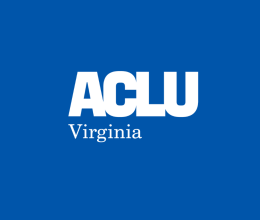
Hopewell, VA – Responding to a request from the ACLU of Virginia, Hopewell’s City Council eased curfew restrictions on teens by adding three exemptions to a proposed ordinance before passing the measure on a 6-0 vote Tuesday night. The ACLU contends that the ordinance is significantly improved by the new amendments, but that it is still too restrictive.
“The ACLU believes that teen curfews should be established by parents, not by the government,” said ACLU of Virginia Executive Director Kent Willis. “Only parents know if their children are mature enough to stay out late, and the government should not be infringing on their right to make that decision.”
The curfew as originally proposed would have required that all individuals under 18 years of age be accompanied by a parent or in their homes by 11:00 p.m., unless they were at work or attending religious ceremonies or at other meetings sponsored by public schools or organizations such as the Boy Scouts and Girl Scouts.
At Tuesday’s meeting, the ordinance was amended to allow teens to be out past 11:00 p.m. in an emergency, when traveling to and from work, or when standing on a sidewalk in front of their own homes.
“We are pleased that Hopewell took much of our advice and amended the ordinance to be significantly less onerous,” said Willis. “But in our society, the freedom to move from one place to another is guaranteed, except in the most extreme emergencies. Although we are obligated to protect our children, we must remember that they have some constitutional rights too. ”
ACLU of Virginia Legal Director Rebecca K. Glenberg had asked Hopewell City Council to rewrite the ordinance to also include a broad exception for any activity protected by the First Amendment, when on an errand for a parent, or when engaged in interstate travel. Those requests were ignored.
“We are now in a wait-and-see posture,” said Willis. “If a teenager involved in a legitimate activity protected by the First Amendment is detained by the police for violating the curfew, we’ll take a look at the facts and the law, and decide if the ordinance should be challenged in court.”
Click here for a copy of Glenberg's letter (pdf).
Contact: Kent Willis (office) 804-644-8022


